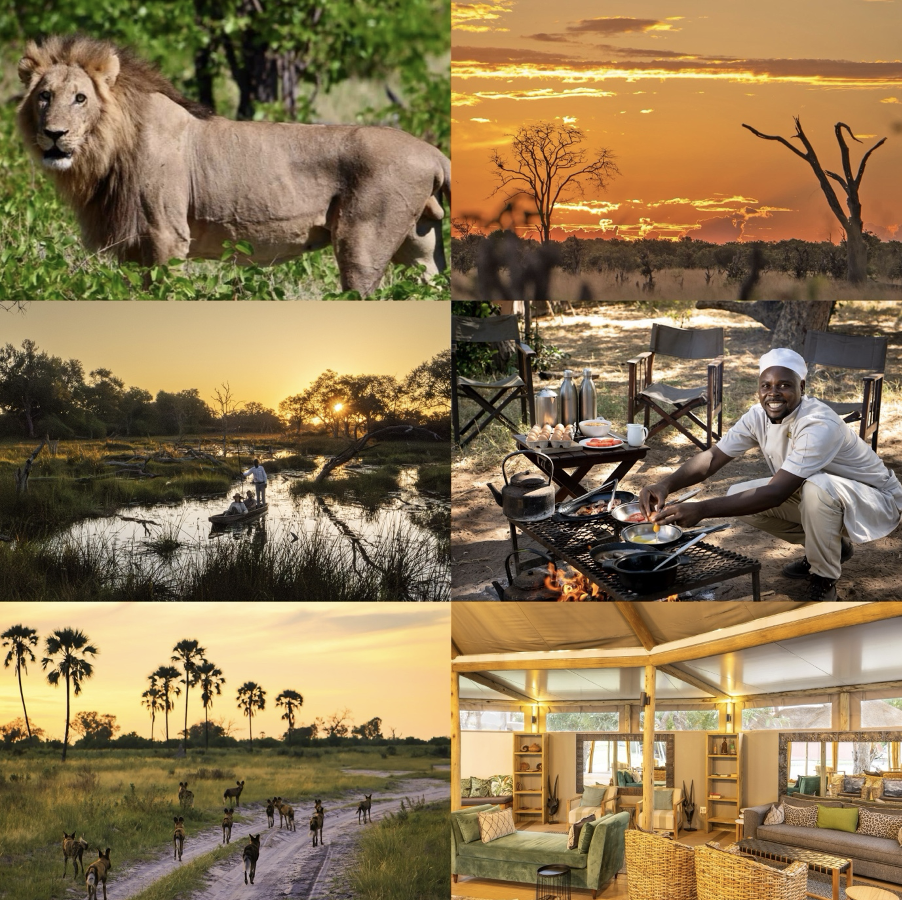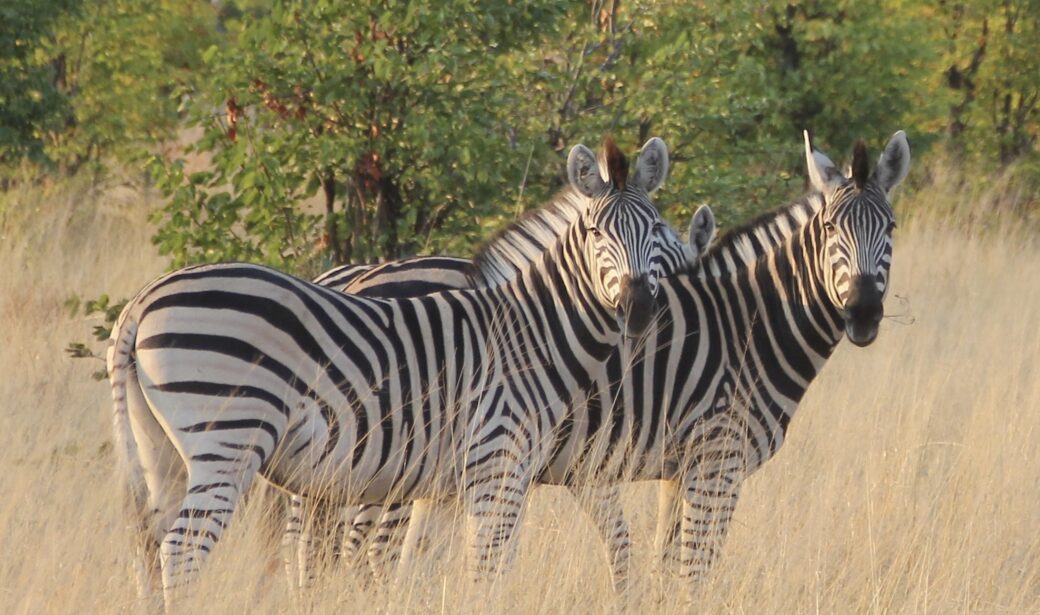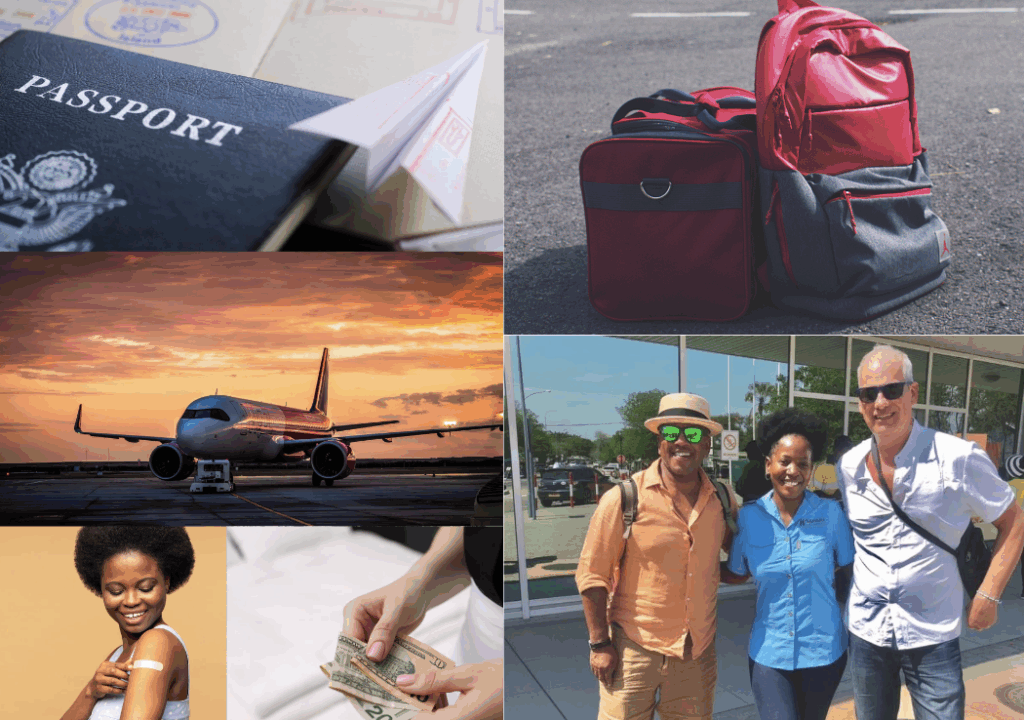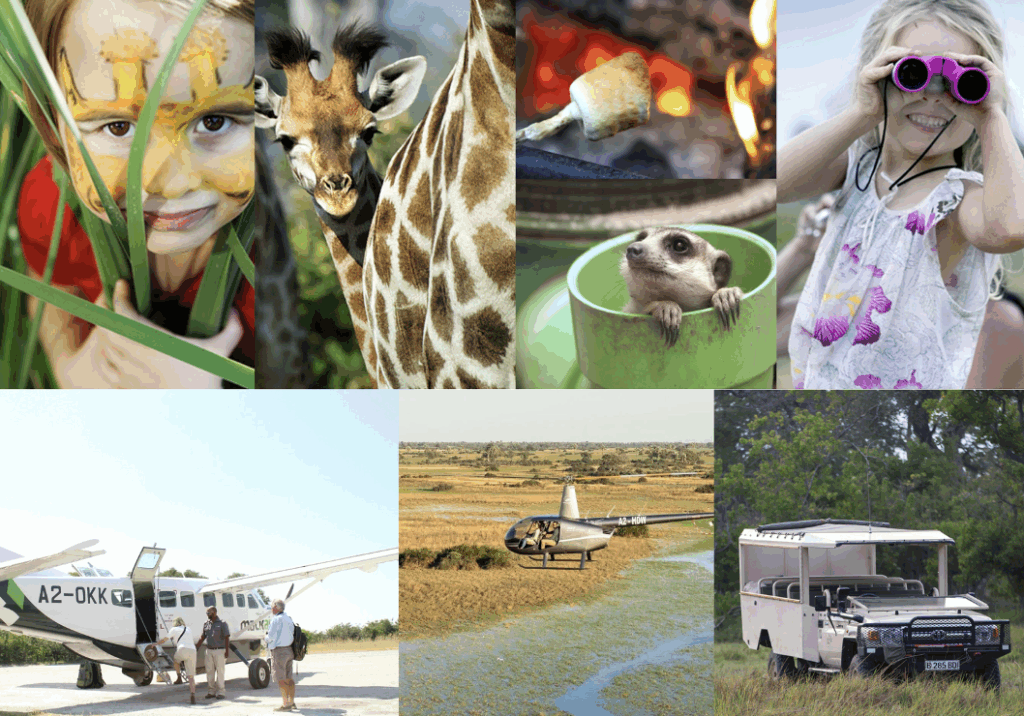A personality-filled, insider-led, confidence-boosting guide from Safari Specialists in Maun!
Planning a safari is a bit like crafting a symphony. You know it will be extraordinary, but each instrument needs to be tuned to create harmony. Speaking to people who live in Botswana helps bring that harmony to life. At Safari Specialists we are not simply arranging a journey. We witness the same sunrises you will soon see and we share the same quiet respect for the wildlife that moves around us. This guide brings you the essential facts along with the small human insights that make safari planning both reassuring and enjoyable.
At Safari Specialists we are not observing Botswana from afar. We are here in Maun, the gateway to the Okavango Delta and being locally based means we know which channels are filling, where the wild dogs denned this season, which lodge has a refreshed menu and how the weather might shape your safari.
This in-depth FAQ gathers the questions we are asked often. It is designed to help you travel with confidence and to deepen your understanding of how your safari supports conservation and communities that call this wilderness home. A safari in Botswana is one of life’s great privileges. It is also a venture into remote wild places where preparation matters. Here is your complete guide to what to pack, what to expect and how to make your experience beautifully seamless from the moment you land to your final game drive.
Activities on Safari
Botswana offers a rich variety of experiences, shaped by landscapes that shift from seasonally flooded channels to open grasslands and desert ridges. Common activities include game drives on open 4×4 vehicles, insightful bush walks with trained guides, mokoro excursions through the Delta’s peaceful waterways, boating activities on deep channels and lagoons, sleep-outs or star beds in designated camps, cultural experiences with Bushman communities, quad biking on the Makgadikgadi salt pans in the dry season, an immersive guided tour of Maun, and helicopter flights in locations where camps do not have airstrips or for scenic aerial photography. Each area has its own signature rhythm, and your Safari Specialists experts will match activities to your interests and the season.
Travel tip: Most international arrivals connect easily through to Maun. If you land after 15h00 you will usually need an overnight stay. Border crossings such as Kazungula involve short walks and standard checks, so keep documentation handy (we highly recommend organize the e-Visa before travelling to Zimbabwe).
Baggage Requirements
Soft bags only. Light aircraft luggage pods have firm rules and little tolerance for wheels or hard cases. Think practical elegance and avoid bulky suitcases that are for pavements than in the Delta. Weight limits are 15 kg for checked luggage and 5 kg for hand luggage. Keep valuables and essentials such as passports, medication, cameras and binoculars in your carry-on.
Clothing and What to Pack
Dress for comfort, layering and practicality. Neutral tones such as olive, khaki and beige help you blend into the bush. Avoid bright white which shows dust quickly, red which can unsettle animals, and camouflage which is restricted at borders.
Winter from May to August brings cold mornings and nights, so bring a warm jacket, beanie, gloves and a scarf. Summer from September to April calls for light breathable clothing, with long sleeves and trousers that protect you from the sun and insects. Year-round essentials include a swimsuit, wide-brimmed hat and high SPF sun protection.
Comfortable closed walking shoes or trainers are ideal for bush walks, with sandals or flip-flops for camp. Accessories such as sunglasses, a neck buff for dust, insect repellent, personal medication, binoculars and a camera with spare batteries will all enhance your comfort and sightings. Ziplock bags help protect electronics.
Most camps offer complimentary laundry, although some request that underwear be washed by hand. In towns and cities, hotel laundry services are available for a fee.
Daily Safari Routine
Expect early mornings and a restorative pace. Wake-up is usually between 05.00 and 05.30 in summer and around 06.00 in winter. Morning activities run until around 10.30 or 11.00, followed by brunch and a siesta. Afternoon tea is served at around 15.30 or 16.00, then guests head out again for an afternoon activity that ends with sundowners in a beautiful spot. Dinner is followed by time around the fire and some lodges and camps offer night drives after dinner.
Entry Requirements and Visas
Botswana is visa-free for most UK, EU, US and Canadian passport holders, with a passport validity of three months beyond departure and two blank pages required. Zimbabwe offers online visas for many nationalities and requires six months validity with four or more blank pages. Zambia offers visa exemptions for most nationalities and requires six months validity and three to five blank pages. Namibia requires visas for some nationalities with six months validity and three to five blank pages.
Travel tip: When travelling with children, carry unabridged birth certificates and any necessary consent letters. Guardians and unaccompanied minors will need additional documentation.
Flights and Transfers
Most safaris rely on scenic small-plane flights that operate with precision yet maintain a relaxed bush character. They do not follow rigid airline-style timetables, so think of them as comfortable lifts across the wilderness. Arriving before 15.00 usually allows a same-day connection to camp. Later arrivals require an overnight stay in Maun or Kasane.
Some camps that lack airstrips are accessed by helicopter, turning your transfer into a breathtaking aerial experience. Road transfers between Victoria Falls or Livingstone and Kasane are straightforward and commonly used. Border crossings such as Kazungula are simple and friendly, often with those charming moments that remind you that Africa has its own unique rhythm.
Travel tip: If you are prone to motion sickness, ginger tablets or medication can help.
Gratuities
Guiding is a respected profession in Botswana. Tipping is never obligatory but is deeply appreciated. Recommended amounts are US 10 to 20 per person per day for guides, US 5 to 10 per person per day for trackers or polers, and US 10 to 20 per person per day for camp staff via a communal tip box. Families often find that a flat contribution works well.
Health and Vaccinations
Botswana’s environment can be hot and dry, so stay hydrated with a balance of water, juice and soft drinks. Keep prescription medication in your carry-on and bring a spare prescription. Northern Botswana is a malaria area and prophylaxis is advised. Use of mosquito nets, repellent and long-sleeved evening clothing. Electricity in remote camps usually follows generator schedules, so please inform us ahead of time if you require continuous power for medical equipment.
A Yellow Fever certificate is required only if you are arriving from or transiting through a risk country. Bring a small personal medical kit with antihistamines, basic medication, electrolyte sachets and plasters. Travel insurance with medical evacuation is essential and we highly recommend Okavango Air Rescue.
Inclusions and Exclusions
Most camps include meals, drinks, activities, park fees and laundry. Exclusions generally cover international and regional flights, visas, premium alcohol, gratuities and personal purchases.
Journeys Between Camps
Expect short scenic flights or 4×4 transfers. On multi-stop small-plane routes, your luggage usually remains on board while passengers embark and disembark.
Kids on Safari
Botswana is wonderfully welcoming to families. Some camps set age restrictions for walks or mokoro outings. Family tents, specialist guides and private vehicles can be arranged to ensure comfort and flexibility.
Local Expertise
Planning a safari from abroad can feel overwhelming. Having a team on the ground in Maun means you benefit from real-time updates on flood levels, wildlife movements and lodge conditions. Our support continues throughout your journey, including airport meet-and-greets in Maun and an after-hours WhatsApp line for reassurance whenever you need it.
Money and Currency
Botswana uses the Pula. USD is widely accepted for tipping, and Zimbabwe uses USD as its primary currency. Most camps accept Visa and Mastercard for curio purchases. ATMs are limited in remote areas, so carry small USD denominations. Avoid Amex and Diners.
National Parks and Concessions
Botswana’s land categories include private concessions with exclusive activities such as night drives and walking, national parks with classic game viewing and set regulations, and community areas that support local livelihoods and offer more accessible pricing.
On-the-Ground Support
Weather patterns, flood levels and travel logistics can shift quickly. With your safari specialist based in Maun, any adjustments are handled smoothly and promptly.
Photography
Botswana’s light is sublime, particularly at sunrise and sunset. Bring spare batteries, memory cards, a lens cloth and a dry bag. Guides are skilled at positioning vehicles for ideal photographs. A good pair of binoculars makes a remarkable difference to your sightings.
Questions to Ask When Planning
Ask yourself what time of year suits your interests, whether you prefer water-based or land-based areas, how much travel you wish to do between camps, and what level of comfort suits you best. These are the questions we explore with every guest.
Responsible Travel
Your safari directly supports conservation and community livelihoods. Camps employ locally, contribute to anti-poaching initiatives and assist with education and healthcare projects. Choosing responsible operators ensures your journey has meaningful impact.
Safety
Camps are unfenced and wildlife may pass through. Never walk alone at night and always follow guide instructions. Stay hydrated, protect yourself from the sun and share any health concerns with camp staff. Botswana is stable with low crime levels, but use safes for valuables and avoid displaying high-value items.
Types of Safaris
Options include fly-in lodge safaris in permanent camps, private mobile safaris for immersion and adventure, scheduled small group mobile safaris across parks and reserves, and lodge to lodge self-drives for independent travellers. We do not arrange camping self-drives, and recommend guided mobile safaris for those seeking that style of travel.
Useful Extras
A small torch or headlamp, adaptor plugs, ziplock bags for dust, a reusable water bottle and a scarf or buff for cool mornings or dusty drives are all helpful.
Value
Our team of specialists loves applying the best deals, super specials, long stay discounts and generally amazing rates when putting together a safari for you. Ask us for the best value camp in each area and our team will be happy to share their knowledge and give you advice.
Weather and Seasons
May to August brings clear days and cold nights. September to November is hot and dry with exceptional game viewing. December to April is the green season with dramatic skies and possible afternoon showers. Each season has its own atmosphere, wildlife movement and pricing.
The X-Factor of Botswana
Botswana is a rare blend of untouched wilderness, low visitor numbers, exceptional guiding and deep conservation impact. It is often described as Africa’s gold standard of safari destinations.
Your Safari Budget
Safari prices vary widely depending on season, comfort levels and camp remoteness. We help you allocate your budget where it will matter most for your interests.
Zimbabwe, Zambia, Namibia and South Africa Extensions
These destinations pair beautifully with Botswana. Victoria Falls, walking safaris in Zambia and the wilderness of Hwange or Mana Pools offer rewarding extensions.
For further information, or if we have missed a topic you were hoping to find, our team of safari specialists is ready to assist. Contact us at info@safarispecialists.net or reach us through the live chat on our website at https://www.safarispecialists.net




